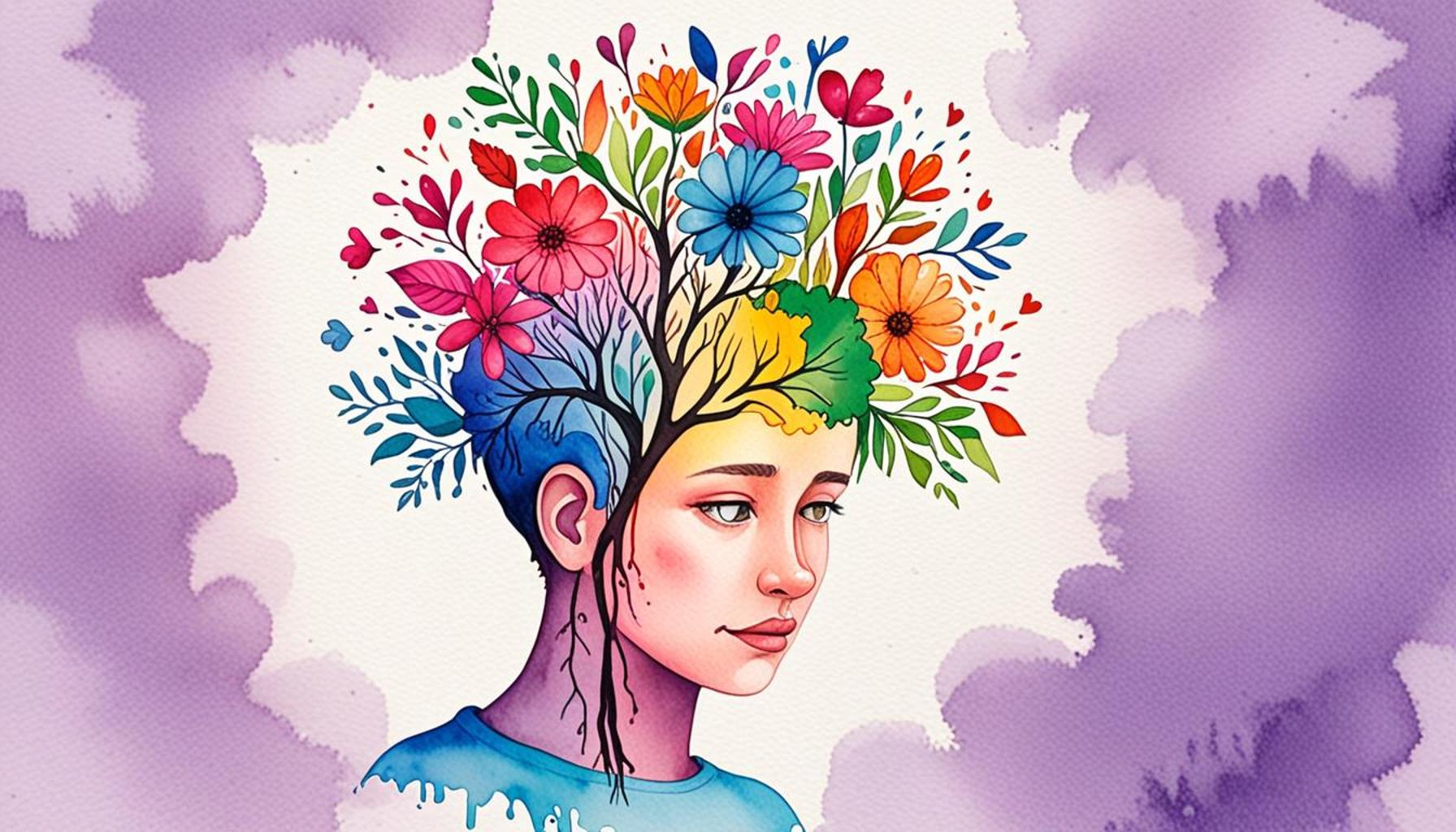Emotional Resilience Techniques for Overcoming Challenges and Fostering Personal Growth

Understanding Emotional Resilience
Emotional resilience refers to the capacity to recover quickly from difficulties and adapt to stressful situations. As the world grows increasingly unpredictable, mastering this skill is crucial for individuals, especially in diverse settings like Nigeria, where economic fluctuations, political instability, and cultural expectations can create substantial challenges.
Importance of Emotional Resilience
Why should individuals prioritize emotional resilience? One key reason is stress management. Resilient people are better equipped to handle the stressors that life throws at them. For example, the constant changes in economic conditions can lead to job insecurities, but those who have developed resilience often manage this stress more effectively, which can contribute to better physical health and mental well-being.
Additionally, adaptability plays a significant role in resilience. With Nigeria experiencing rapid changes in technology, market trends, and social norms, individuals who can adapt are more likely to thrive. For instance, a young entrepreneur who embraces digital marketing techniques can pivot more easily amidst changes, tapping into new markets and audiences while others may struggle.
Another critical component is the impact of resilience on relationships. Strong emotional resilience leads to healthier interpersonal dynamics, making navigating conflicts and maintaining relationships easier. For instance, community gatherings or family events often present challenges, but resilient individuals approach these conflicts with patience and understanding, leading to resolution rather than resentment.
Techniques to Build Emotional Resilience
In a country with such rich and diverse cultures like Nigeria, there are numerous practical techniques to foster resilience. Mindfulness is one effective method. Engaging in practices like meditation, even in short daily sessions, encourages self-awareness and a comforting sense of presence amidst chaos. Many Nigerians are turning to indigenous practices—such as traditional music or storytelling—to ground themselves and cultivate peace of mind.
Another essential technique is building a support network. Connecting with friends, family, or community groups can provide emotional backing. In Nigeria, the concept of ‘Ile’ (home) is not only a physical space but an emotional refuge. Engaging actively with one’s community can foster relationships that enhance resilience, as sharing experiences and solutions collectively often lightens the burden of personal challenges.
Lastly, self-reflection is a vital tool for personal growth. Regularly evaluating one’s actions and feelings can lead to insights that pave the way for resilience. Journaling, for instance, can help you track your responses to stressors and identify patterns that need change—an important step in personal development.
By implementing these strategies, individuals in Nigeria can enhance their emotional resilience and ultimately lead healthier, more fulfilling lives, opening doors to new opportunities amidst adversity.
ADDITIONAL INSIGHTS: Expand your understanding here
Key Techniques for Enhancing Emotional Resilience
Building emotional resilience requires intentional effort and practice. In Nigeria, where the cultural landscape is filled with both vibrancy and complexity, individuals can implement various techniques tailored to their unique experiences. The following strategies can enable people to face challenges head-on and foster personal growth, ultimately leading to a more fulfilling life.
1. Embracing Mindfulness Practices
Mindfulness is one of the cornerstone techniques for fostering resilience. This practice encourages individuals to stay present and cultivate a sense of calm amidst the chaos of daily life. Nigerians are increasingly seeking out mindfulness methods, weaving traditional practices into modern approaches. Techniques such as meditation, deep-breathing exercises, and yoga can be integrated into daily routines. For instance, community gatherings often provide opportunities for collective mindfulness through drumming sessions or communal prayers, creating a shared space for reflection and tranquility.
2. Establishing a Support Network
The importance of social connections cannot be overstated in building resilience. Strong support networks enhance emotional well-being, making challenges easier to navigate. In Nigeria, relationships often extend beyond immediate family to include friends, neighbors, and even local community leaders. By engaging in community events or cultural festivals, individuals can strengthen these bonds. A robust support system can provide a safe haven during tough times, as sharing experiences often fosters empathy and collective healing.
3. Practicing Self-Reflection
Self-reflection is an essential technique for personal growth and emotional resilience. This practice involves examining one’s thoughts, feelings, and reactions to challenges. By understanding these patterns, individuals can make informed decisions about their actions. One effective method is journaling, which allows for an introspective analysis of experiences and emotional responses. Creating a list of daily emotions or challenges faced can provide insights into triggers and behaviors. Consider these guiding questions during self-reflection:
- What emotions did I feel today, and what triggered them?
- How did I respond to stress or conflict?
- What coping strategies did I employ, and how effective were they?
- What lessons can I adopt moving forward?
This practice not only improves emotional awareness but also fosters growth by promoting a change in perspective regarding challenges. Identifying maladaptive responses allows for conscious attempts at behavior change, laying the groundwork for greater resilience.
4. Leveraging Cultural Practices
In Nigeria, rich cultural traditions can be harnessed to build emotional resilience. Engaging in indigenous storytelling or participating in local music and dance can evoke a sense of belonging and connection to one’s roots. These activities not only serve as a reprieve from life’s stresses but also reinforce community ties and remind individuals of their strength in shared identity. By embracing cultural heritage, individuals can find solace and strength that support their resilience journey.
Ultimately, by incorporating these techniques into daily life, individuals in Nigeria can significantly enhance their emotional resilience, equipping themselves to tackle challenges with renewed vigor and a sense of purpose.
| Technique | Description |
|---|---|
| Mindfulness Practice | Enhances awareness of thoughts and emotions, enabling individuals to respond to challenges thoughtfully. |
| Positive Affirmations | Boosts self-esteem and encourages a growth mindset, essential for overcoming obstacles and embracing change. |
These techniques serve as foundational elements within the framework of emotional resilience, allowing individuals to navigate hardship with greater adaptability. By engaging in mindfulness practices, one can develop a heightened sense of awareness that leads to improved emotional regulation, crucial during stressful situations. Furthermore, incorporating positive affirmations into daily routines not only fosters a constructive internal dialogue but also bolsters the individual’s ability to approach challenges as opportunities for growth.
As readers delve into the specifics of each technique, they will uncover additional strategies to integrate into their personal development paths, paving the way for transformative experiences that extend beyond mere survival. Understanding and implementing these emotional resilience techniques can truly enhance one’s quality of life and personal effectiveness.
LEARN MORE: This related article may interest you
Exploring Additional Techniques for Cultivating Resilience
Beyond mindfulness, support networks, self-reflection, and cultural practices, there are several other effective techniques that can bolster emotional resilience in the face of adversity. By incorporating these strategies into everyday life, individuals in Nigeria can develop a robust capacity to navigate the complexities of their circumstances while promoting substantive personal growth.
5. Setting Realistic Goals
Another vital technique for enhancing resilience is the art of goal-setting. Establishing achievable and specific goals can create a sense of direction and purpose, which is particularly valuable during challenging times. By breaking down larger aspirations into smaller, manageable tasks, individuals can maintain motivation and a sense of accomplishment as they make progress. In Nigeria, this approach can be applied across various domains, whether it’s in career planning, education, or personal development. For instance, a student may set a realistic academic goal of improving their scores in a particular subject rather than striving for an unrealistic overall grade. This gradual process allows for celebrating small victories, which can significantly boost one’s emotional resilience.
6. Adopting a Growth Mindset
Embracing a growth mindset—the belief that abilities and intelligence can be developed through effort and learning—can have a profound impact on resilience. This perspective encourages individuals to view challenges as opportunities for growth rather than insurmountable obstacles. In the Nigerian context, where educational and career pathways may encounter numerous hurdles, adopting a growth mindset can empower individuals to persist through setbacks. Engaging in positive self-talk and replacing negative thoughts with affirmations can support this outlook. For example, instead of thinking, “I can’t do this,” one might reframe it as, “I will improve with practice.” Such strategies equip individuals to not only endure challenges but emerge from them stronger and wiser.
7. Engaging in Physical Activity
Physical activity is another crucial element contributing to emotional resilience. Exercise has been shown to reduce stress, anxiety, and symptoms of depression by releasing endorphins—natural mood lifters. In Nigeria, incorporating traditional forms of dance or engaging in sports can serve as an enjoyable means of maintaining physical health while boosting emotional well-being. Participating in communal sports events or fitness groups can deepen relationships and create a vibrant support system, reinforcing the importance of connection in fostering resilience.
8. Practicing Gratitude
Gratitude practices have gained recognition as a powerful tool for improving mental health and overall life satisfaction. Engaging in gratitude journaling, where individuals note down things they are thankful for daily, can shift focus from challenges to positive experiences. By acknowledging even the smallest joys—be it a warm smile from a neighbor or a successful meal shared with family—individuals can cultivate a more positive outlook on life. In a culturally rich landscape like Nigeria, sharing gratitude during community events can bring people together, fostering a collective sense of appreciation that enhances emotional resilience.
9. Seeking Professional Support
Lastly, knowing when to seek professional support is paramount in building emotional resilience. In Nigeria, mental health awareness is gradually increasing, paving the way for open discussions about emotional well-being. Accessing counseling or therapy services can provide tailored support, equipping individuals with coping strategies and fostering deeper self-awareness. Mental health professionals can serve as valuable guides in navigating the complexities of personal and cultural challenges, ensuring that individuals are not alone in their resilience journey.
By actively incorporating these diverse techniques, individuals in Nigeria can enhance their emotional resilience, turning challenges into opportunities for substantial personal growth. The journey towards resilience does not have to be solitary—it is cultivated through intentional practices and shared experiences.
RECOMMENDED: Check out this similar article
Conclusion
In a world that is fraught with uncertainties and challenges, cultivating emotional resilience emerges as a powerful antidote to adversity. The techniques discussed in this article—from mindfulness and goal-setting to the practice of gratitude and engaging in physical activity—offer a tapestry of strategies that empower individuals to navigate life’s complexities. By adopting a growth mindset and seeking professional support when necessary, individuals can transform obstacles into stepping stones for personal development, thereby fostering substantial growth.
Contextualizing these techniques within Nigeria’s rich cultural framework adds depth to their application. Whether it’s drawing strength from communal ties or leveraging traditional practices, the journey toward emotional resilience is enriched by the shared experiences of family, friends, and communities. Integrating these practices into daily routines not only enables individuals to build a more resilient self but also contributes to a healthier collective mindset.
Ultimately, emotional resilience is not a destination but a journey. As individuals commit to these techniques, they can break free from the shackles of fear and uncertainty, embracing life’s challenges with newfound strength and optimism. To encourage further exploration, individuals and communities are urged to share their experiences and insights, thus fostering an environment where resilience is nurtured and celebrated. By engaging in this ongoing dialogue, we can better equip ourselves and others to flourish amid adversity, revealing the transformative power of emotional resilience in our lives.


